detail profile jean claude pascal
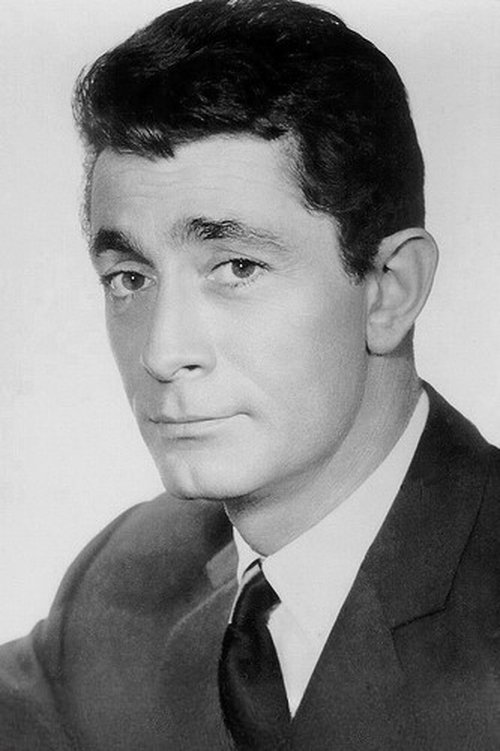
Jean-Claude Pascal
Жан-Клод Паскаль
atau dikenal sebagai
Riwayat Hidup
Jean-Claude Pascal (b.
24 October 1927 in Paris, France as Jean-Claude Villeminot.
d.
5 May 1992) was a French singer.
After surviving the Second World War in Straßburg, Pascal first studied at the Sorbonne-university and then turned to fashion-designing for Christian Dior.
On his work for costumes for the theatre-play Don Juan he came into contact with acting and made his first cinema-movie in 1949 with Quattro rose rosse.
Many movies should follow, among them La Belle et l'empereur ("Die schöne Lügnerin", 1959) (aside to Romy Schneider) or Angelique and the Sultan (Angélique et le sultan, 1968) aside to Michèle Mercier.
Pascal won the 1961 Eurovision Song Contest for Luxembourg singing "Nous les amoureux" (We the lovers) with music composed by Jacques Datin and lyrics by Maurice Vidalin.
He later represented Luxembourg again in the 1981 contest and finished 11th of 20 singing "C'est peut-être pas l'Amérique" (It may not be America) with words and music he composed along with Sophie Makhno and Jean-Claude Petit.
Description above from the Wikipedia article Jean-Claude Pascal, licensed under CC-BY-SA, full list of contributors on Wikipedia.
Info Pribadi
Peran Yang Di Mainkan Jean-Claude Pascal
 Since his wifes death Arthur a...
Since his wifes death Arthur a...Bandaged 2009
Since his wife's death, Arthur, a peculiar and severe surgeon, cloisters his teen daughter Lucille inside a strange mansion. Desperate, Lucille tries to commit suicide and ends up with her face completely burned and bandaged. Arthur, with the assistance of his aunt, prepares a weird skin graft in order to give back Lucille a face, a face that resembles his beloved and deceased wife. To take care of her, the father then hires Joan, an attractive nurse with a somber past. Lucille and Joan start a forbidden and passionate love affair.
 Anglique is in a North African...
Anglique is in a North African...Angelique and the Sultan 1968
Angélique is in a North African Muslim kingdom where she is now part of the Sultan's harem. She refuses to be bedded as her captors try to beat sense into her. She finally decides to escape with the help of two Christian prisoners.
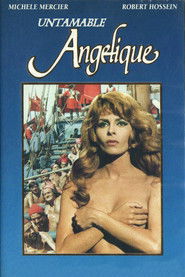 Angelique goes in search of her...
Angelique goes in search of her...Untamable Angelique 1967
Angelique goes in search of her husband Joffrey de Peyrac who did not die on the stake.
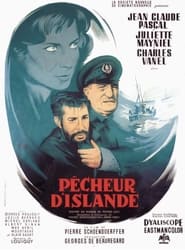 Yan captain of a fishing boat...
Yan captain of a fishing boat...Island Fishermen 1959
Yan, captain of a fishing boat, falls in love with the daughter of his boss, to the great displeasure of Jenny, his jealous mistress.
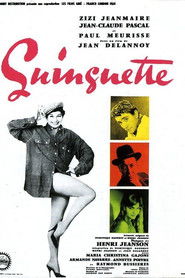 Rene dite Guinguette a former prostitute...
Rene dite Guinguette a former prostitute...Guinguette 1959
Renée dite Guinguette, a former prostitute, has earned enough money on the Parisian sidewalk to buy her dream: a waterfront guinguette. Her new lover, Marco, offers her the use of an unused adjoining barn to store the second-hand cars he trades in. But the "used" cars are actually stolen, and the charming Marco is a bad boy. After a few deaths and various vicissitudes, love finally triumphs.
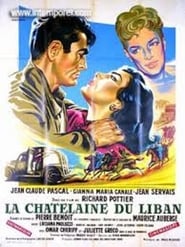 In Lebanon industrialist Hennequin director of...
In Lebanon industrialist Hennequin director of...The Lebanese Mission 1956
In Lebanon, industrialist Hennequin, director of a French oil company, entrusts engineers Jean Domèvre, a Frenchman, and Mokhrir, a Lebanese, with the prospecting of an isolated region granted to him by Countess Athelstane Orloff. Their search remains fruitless until Mokhir reports the discovery of a uranium deposit, but disappears before Jean can identify the location. He goes to the Countess for help in finding Mokhir and surprises her when, due to financial difficulties, she is negotiating her concession with the Englishman Hobson, director of a rival company. Attracted by Jean, the Countess nevertheless gives him her preference and they set off together in search of Mokhir.
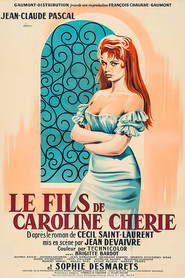 A swashbuckling heritage reveals itself as...
A swashbuckling heritage reveals itself as...Caroline and the Rebels 1955
A swashbuckling heritage reveals itself as the adopted son of 19th-century Spaniards develops into a suave lady-killer.
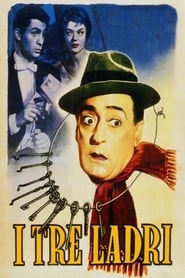 Tapioca a smalltime thief hides out...
Tapioca a smalltime thief hides out...The Three Thieves 1954
Tapioca, a small-time thief, hides out in an elegant apartment, where he is soon joined by Cascarilla, one of his apprentices who has become better than his master. When the owners arrive home, the latter offers the wife a bunch of love letters she has written to various lovers for ten million.
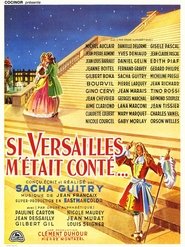 Witty narration follows the history of...
Witty narration follows the history of...Royal Affairs in Versailles 1954
Witty narration follows the history of Versailles Palace; founded by Louis XIII, enlarged by autocratic Louis XIV, whose personal affairs and amours, and those of his two successors, are followed in more detail to the start of the Revolution, after which the story is brought rapidly up to date. A huge cast plays mainly historical persons who appear briefly.
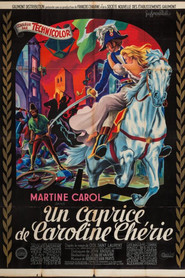 Caroline de Bienre the 16yearold daughter...
Caroline de Bienre the 16yearold daughter...A Caprice of Darling Caroline 1953
Caroline de Bienre, the 16-year-old daughter of French nobility, meets the handsome rogue, Gaston de Sallanches, who is expected to ask for the hand of her older, plainer sister in marriage. Gaston instead joins Caroline in her secret hiding place in the château's attic, where the infatuated Caroline begins an affair with him. Meanwhile, she is being courted by the dull, sincere Livio, but holds him off since she is in love with Gaston. When the revolution of 1789 breaks out Caroline is sent to a convent but her carriage is waylaid. She escapes and makes her way to Gaston's home, where she finds him in the arms of his mistress. She is angry and then agrees to marry Livio, now an out-of-favor revolutionary and a marked man, and Caroline is also now on the death list.
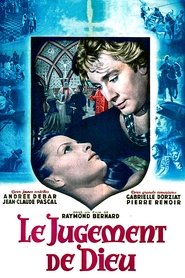 Bavaria 1433 Reason of state rules that...
Bavaria 1433 Reason of state rules that...Judgement of God 1952
Bavaria, 1433. Reason of state rules that Prince Albert is to marry Princess Bertha of Wurtemberg. But the fine-looking young man is loath to become the husband of a woman with pimples,flat feet and no breast. Nevertheless, he has to obey his authoritarian father, Duke Ernest, and accompanied by faithful Count Törring, he mounts his steed and sets out for Würtemberg. Stopping in Augsburg, he falls in love with the daughter of a local barber-surgeon, pure and beautiful Agnès Bernauer. The couple is soon secretly married and both take refuge at the castle of Margravine Josepha, Albert's aunt, waiting for Ernest's consent. Unluckily Albert's father will not accept his son's union with a commoner and Albert, supported by Josepha and an army of common people, declares war on the Duke. They seem about to be victorious when Brother Enrique, a monk formerly in the Holy Inquisition, finds a way to reverse the situation: accusing Agnès of witchcraft...
 Marisol a young star of Spanish...
Marisol a young star of Spanish...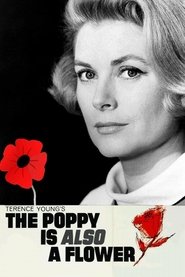 A special United Nations bureau organises...
A special United Nations bureau organises...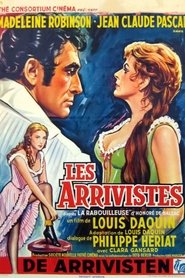 The machinations of an exofficer and...
The machinations of an exofficer and... In 1815 Vienna a corsetmaker falls in...
In 1815 Vienna a corsetmaker falls in...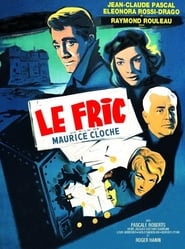 Bob recruits Jacques a desperate blacksmith...
Bob recruits Jacques a desperate blacksmith...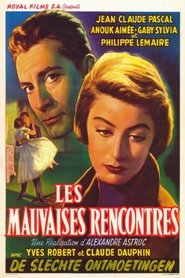 Catherine Racan a young journalist who...
Catherine Racan a young journalist who... In this romance a jilted lawyer...
In this romance a jilted lawyer... A young girl marries a man...
A young girl marries a man...